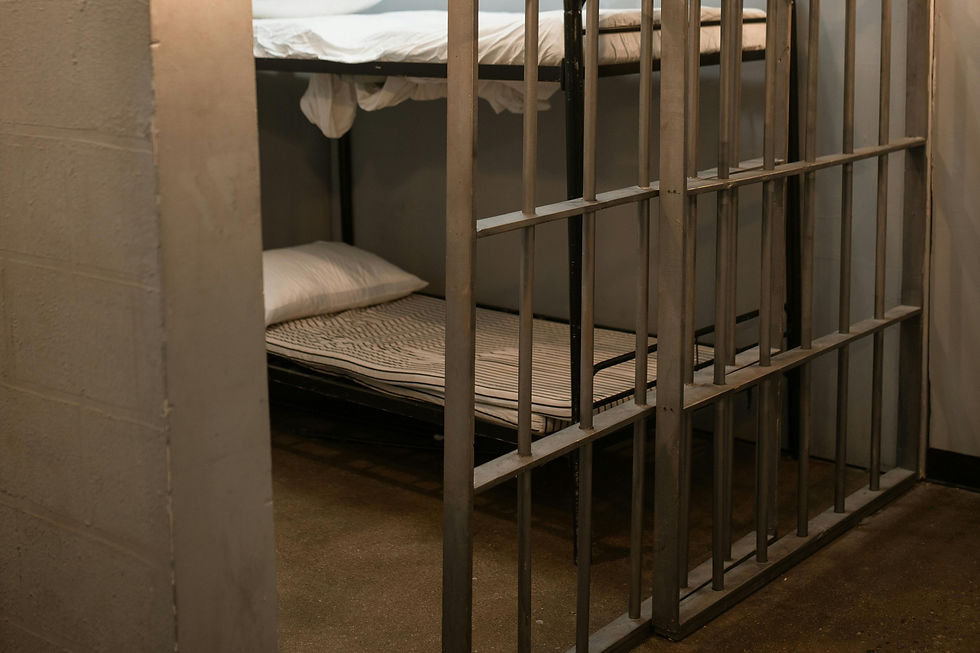Survivor Justice: Black Women and Girls Deserve Access to Healing and Support — Not Jail
- Kera Riddick
- Oct 24, 2025
- 3 min read
Updated: Oct 27, 2025

Black women and girls are overwhelmingly affected by gender-based violence, including intimate partner violence, domestic violence, and sexual assault. Black survivors are all too often criminalized for their survival strategies and for their response to trauma and abuse. This abuse-to-prison pipeline, referring to the pathways that lead from gender-based violence to criminalization, further harms Black women and girl survivors of abuse.
One in five Black women have experienced rape at some point in their lives.
Sixty-seven percent of Black girls report having been “touched, grabbed, or pinched in a sexual way” by someone in school.
Among women incarcerated, 44 percent are Black and
86 percent of women in jail have experienced sexual violence.
Experiences of gender-based violence do not exist in isolation. For Black women and girls, especially, their experiences are deeply intertwined with and informed by their race and gender and other factors like homelessness, past experiences of family violence, and racial and gender barriers within the criminal legal system. These factors create cycles of compounded trauma while exposing Black women and girls to more harm by punishing them for their victimization and survival.
Factors that Place Black Women and Girls at Risk of Gender-Based Violence, Sexual Violence, & Abuse and Contribute to the Abuse-to-Prison Pipeline

A number of conditions and factors expose Black women and girls to the risk of sexual violence, trafficking, gender-based violence, abuse, and trauma.
Involvement in child welfare systems: Black children are overrepresented in the foster care system, a risk factor for sexual violence and trafficking. Black girls make up 23 percent of girls in foster care. Yet, rather than being treated as survivors, they are often criminalized for survival strategies like running away or defending themselves.
Adultification of Black Girls: Law enforcement and others continue to view Black girls as less innocent, more adult-like and in less need of protection and nurturing. This is known as “adultification.” Racial and gender inequities—including adultification bias—are embedded throughout U.S. systems and institutions. Leading to responses from law enforcement that criminalize Black girls and cause more harm.
Sex trafficking: Approximately 40% of sex trafficking victims and survivors are Black women, the highest percentage of any race. Abusers report targeting Black women and girls because they believe they will spend less time in prison compared to targeting white women and girls. Yet when Black survivors of trafficking defend themselves—like Chrystul Kizer, a 16-year-old girl preyed on, groomed, sexually abused, and trafficked by a 34-year-old man—they are punished rather than treated as victims and survivors.
Survivor-Centered Solutions
At the National Black Women’s Justice Institute, our mission is to advance healing-centered policies and practices that dismantle pathways to criminalization and confinement and increase opportunities and protections for Black women & girls who are directly impacted by the criminal and juvenile legal systems.
Our Justice for Youth Survivors Initiative (JYSI) is one way we are doing that.
Justice for Youth Survivors —a program co-led by the National Black Women’s Justice Institute and the Center on Gender Justice & Opportunity at Georgetown Law, with input and leadership from Black girls—aims to transform the legal system by promoting trauma-informed and gender-responsive policies and practices that keep survivors safe and out of the legal system and end the abuse-to-prison pipeline for Black girls.
As we recognize October as Domestic Violence Awareness Month and uplift survivor-centered solutions, we encourage you to learn more about how gender-based violence impacts Black women and girls by downloading our factsheets:

Get Involved
You can support our work by subscribing to our newsletter to receive updates about reports and resources that support system-impacted Black women and girls and by sharing this blog with your network.
If you are interested in making a donation, click here.



